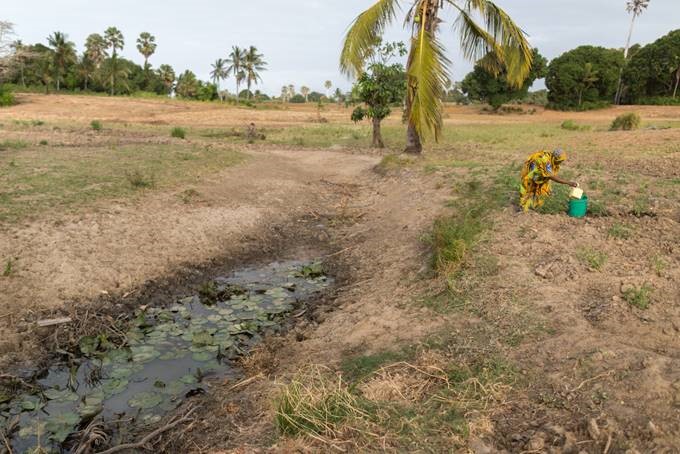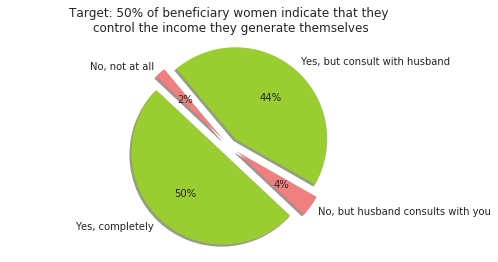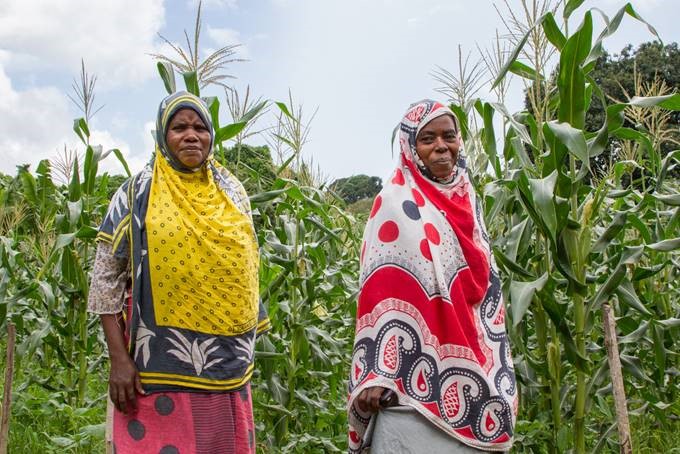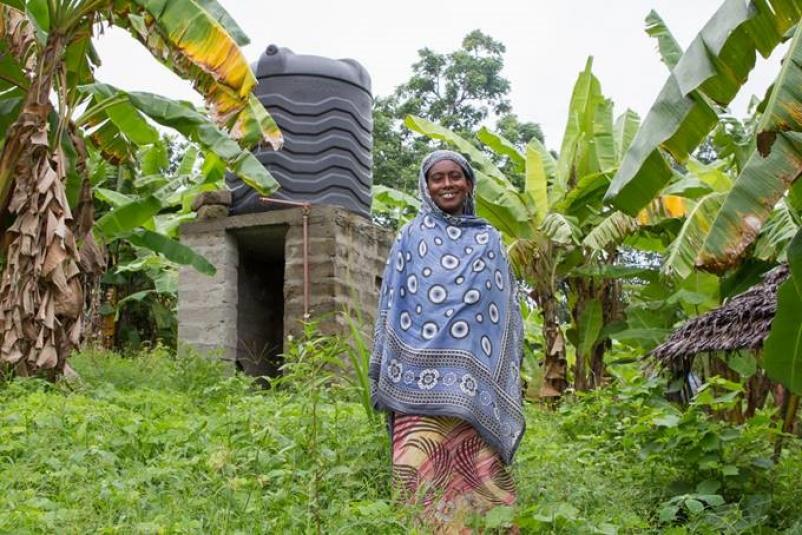News & Updates
Women’s Empowerment is Critical to the Fight Against Climate Change in Tanzania
30
Salume Khamis walks up a path between two small adobe houses; one is partially converted into a small store selling dried goods and a few household items. She smiles broadly and greets her teacher, Siti Makame.
When Salume first met Siti two years ago, she had a small garden, no personal income, and her family was eating vegetables only once or twice a week. Like so many other women in rural Tanzania, she was forced to rely on her husband to bring in enough money to support their family – while she gathered fuel, grew food, and cared for their children. Salume was stuck without access to formal education, land, or capital.

The effects of climate change severely exacerbate the challenges they face as primary providers of household needs. In Tanzania, women like Salume bear the major responsibility for providing food, water, and energy to households in rural areas and are more dependant on natural resources than men due to unequal access to assets and income. [1]
In addition to adapting to a rapidly changing environment, women also face the systemic challenges of gender-bias and discrimination. Out of the 188 countries listed in the United Nations Gender Inequality Index, Tanzania ranks 129th. [2]. Of the 84% of women in Tanzania who work, only 58% get paid, and of that 58%, 13% have no say in how their earnings are spent. [3] This is just the tip of the iceberg on the inequalities women face in Tanzania. If we are to tackle the huge tasks of adapting to climate change and combating poverty, we will have to simultaneously address persistent gender inequality.
Agricultural Officer, Siti Makame trains 30 women on seed saving, water management, and natural pesticide use at the CFP Rural Innovation Campus, Pemba Tanzania.
Salume’s teacher Siti is doing her part to challenge this inequality. An agricultural expert and the first person to become a certified permaculture practitioner on the Island of Pemba, Siti is an inspiring mentor to women farmers. She trains hundreds of women a year in climate-resilient agriculture, delivering hands-on training to help them increase their yields while simultaneously diversifying the variety of vegetables they grow.
She also plays a vital role helping women increase their income and independence - under her leadership, 50% of the women participating in Community Forests Pemba (CFP) programs completely control their income, with only 2% reporting they have no control over how they spend their income at all. Well above the national average.[Fig 1]

“Women have to be ready to defend their economic rights. Including their right to own land, to work in any sector, and to hold positions of decision making from village leaders to high government level.” – Siti Makame
As Salume’s garden grew, so did her income and the nutrition of her family – who now eat a variety of vegetables every day. Following Siti’s lead, Salume shared her knowledge with her three sisters and several of her neighbours and began to grow her business. In the first year, Salume and her sisters used funds from the excess produce they sold to expand to a small farm plot. They then secured a loan to install a well, a header tank, and a pump at their farm. They have also established a small poultry operation and dream of establishing a fishpond.

Empowering rural women economically creates crosscutting benefits by increasing child education, nutrition, and climate change resilience. In order to succeed in meeting the UN Sustainable Development Goals and adapt to the negative effects of climate change, it is crucial to stand beside women like Siti and Salume and continue to support women locally as we push for the policy changes that will ensure women have the resources, knowledge, and authority to prosper alongside their families and countries - even in a changing climate.
[1]Climate Governance and Development Case Study: Tanzania. Dr. Riziki Shemdoe. (pp.15- 16).
[2] United Nations Development Program: Human Development Reports. 2016. Table 5: Gender Inequality Index.
[3] National Bureau of Statistics, Tanzania 2016.
For more information or to support Community Forests International please visit wwww.forestsinternational.org
Post Script: Brinkman is a proud supporter of Community Forest International.




 2669 E Hastings., Vancouver BC, V5K 1Z5
2669 E Hastings., Vancouver BC, V5K 1Z5 (604) 521-7771
(604) 521-7771
